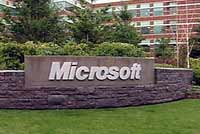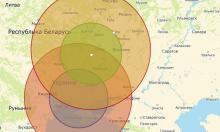European Union fines Microsoft 1.3 billion dollars
The dispute between the European Union and Microsoft Corp. ended with a record $1.3 billion fine for failing to comply with a 2004 antitrust order.

Microsoft has not decided yet whether it should appeal the penalty, which makes up a fraction of the $14.07 billion it made in fiscal 2007. It is worthy of note that the world’s biggest software company has been fined under $2.4 billion by European antitrust regulators over the years.
Barring an appeal, the fine shuts the door on an investigation into Microsoft's behavior that was triggered by a 1998 complaint by Sun Microsystems Inc. It alleged Microsoft was refusing to supply information that servers need to work with its market-dominating Windows operating system.
Microsoft eventually made the information available to rivals, but the EU said it charged "unreasonable prices" until last October.
EU Competition Commissioner Neelie Kroes said Microsoft now appears to have finally complied with the 2004 EU antitrust order. But she warned that the company was not yet in the clear because the EU last month launched new probes into its Office software and Windows' Internet browser.
The fine was handed down as Microsoft pursues its biggest acquisition to date, but Matt Rosoff, an analyst at the research group Directions on Microsoft, said it would have no effect on the software maker's bid for Web portal operator Yahoo Inc.
"This is a fine for past behavior," said Rosoff, unrelated to Microsoft's offer for Yahoo, which was valued at $44.6 billion in early February.
Kroes also was skeptical over Microsoft's announcement last week that it was further expanding its efforts to make its software work better with rival technologies. A news release, she said, "does not necessarily equal a change in business practice."
"Talk is cheap. Flouting the rules is expensive," she said.
Wednesday's penalty far outweighs the next biggest fine — $613 million imposed on Microsoft for using its role as the world's leading supplier of desktop software to elbow into new markets for workgroup servers and media players.
Fines — which can hit as much as 10 percent of company's global yearly revenue — are paid into the EU budget which pays out farm subsidies and research grants. The European Commission claims antitrust fines ultimately help reduce the financial burden on European taxpayers.
Microsoft earned $14.07 billion on $51.12 billion in worldwide sales during its last fiscal year that ended June 30.
"We could have gone as high as 1.5 billion euros," Kroes said, referring to an amount equal to about $2.2 billion. "The maximum amount is higher than what we did at the end of the day."
Microsoft's actions stifled innovation, hurting millions of people who use computers in offices around the world, she said, calling the fine "a reasonable response to a series of quite unreasonable actions."
The software titan fought hard against the EU's 2004 decision that ordered it to share interoperability information with rivals and sell a version of Windows without media software, taking an appeal to an EU court that it lost last September.
It was fined again in July 2006 — $357 million — for failing to obey that order.
The EU alleged that Microsoft withheld crucial interoperability information to squeeze into a new market and damage rivals that make programs for workgroup servers that help office computers connect to each other and to printers and faxes.
The company delayed complying with the EU order for three years, the EU said, only making changes on Oct. 22 to the patent licenses it charges companies that need data to help them make software that works with Microsoft.
Microsoft had initially set a royalty rate of 3.87 percent of a licensee's product revenues for patents and demanded that companies looking for communication information — which it said was highly secret — pay 2.98 percent of their products' revenues.
The EU complained last March that these rates were unfair. Under threat of fines, Microsoft two months later reduced the patent rate to 0.7 percent and the information license to 0.5 percent — but only in Europe, leaving the worldwide rates unchanged.
The EU's Court of First Instance ruling that upheld regulators' views changed the company's mind again in October when it offered a new license for interoperability information for a flat fee of $14,900 and an optional worldwide patent license for a reduced royalty of 0.4 percent.
Even as the EU moves on to new complaints, Microsoft's 1990s business practices remain the subject of oversight in the U.S.
In January, a federal judge extended a consent decree enforcing the 2002 antitrust settlement reached among Microsoft, the U.S. government and 17 states by two years. The settlement barred Microsoft from seeking deals with computer makers to exclude competing software and aimed to keep it from using its operating system monopoly to stifle competition in other products.
Subscribe to Pravda.Ru Telegram channel, Facebook, RSS!





